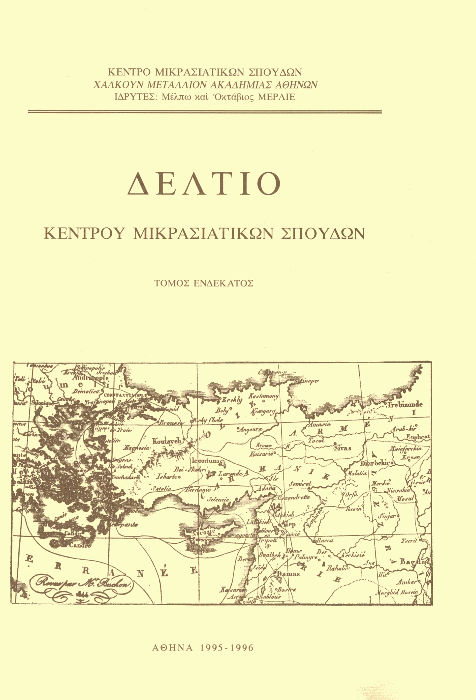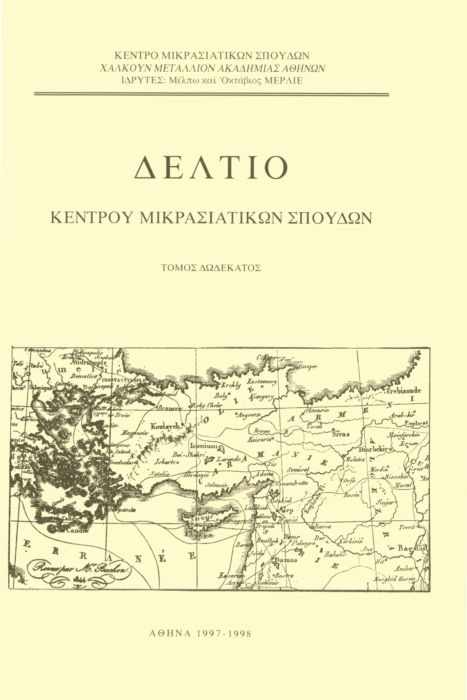Αμαρτίες, αρρώστιες και γιατρειές στη Μικρά Ασία στους πρώτους μεταχριστιανικούς αιώνες
Περίληψη
The Greek inscriptions are an important source for the history of ancient
medicine. The rows, the reports of miraculous healings, and the confession
inscriptions reveal the attitudes of simple people toward illness and cures. This
article examines the confession inscriptions of Lydia and Phrygia (2nd-3rd cent.
AD), which attest the belief that illness (especially oracular diseases and mental
disorders) was a form of divine punishment, usually for a sacrilege. Although
scientific medicine was not unknown in these areas, the high costs of medical
treatment, the belief in the omnipotence of the local gods, and above all the belief
that cure could be attained only through expiation brought the villagers to the
local sanctuaries. There, the priests practiced a kind of «religious healing»,
applying incantations, oracles, sacrifices, purifications, and the ritual transfer of
the sin to a triad of animals. In this respect the confession inscriptions of Asia
Minor differ from the miraculour healings known from various Asklepieia
(Lebena, Epidauros, Pergamon), since the latter are closely related to contemporary
scientific medicine.
Λεπτομέρειες άρθρου
- Πώς να δημιουργήσετε Αναφορές
-
Χανιώτης Ά. (1995). Αμαρτίες, αρρώστιες και γιατρειές στη Μικρά Ασία στους πρώτους μεταχριστιανικούς αιώνες. Δελτίο Κέντρου Μικρασιατικών Σπουδών, 11, 13–44. https://doi.org/10.12681/deltiokms.46
- Τεύχος
- Τόμ. 11 (1995)
- Ενότητα
- Άρθρα

Αυτή η εργασία είναι αδειοδοτημένη υπό το CC Αναφορά Δημιουργού – Μη Εμπορική Χρήση – Παρόμοια Διανομή 4.0.
Οι συγγραφείς των άρθρων που δημοσιεύονται στο Δελτίο διατηρούν τα δικαιώματα πνευματικής ιδιοκτησίας επί των άρθρων τους, δίνοντας στο περιοδικό το δικαίωμα της πρώτης δημοσίευσης. Άρθρα που δημοσιεύονται στο Δελτίο διατίθενται με άδεια Creative Commons 4.0 και σύμφωνα με την άδεια μπορούν να χρησιμοποιούνται ελεύθερα, με αναφορά στο/στη συγγραφέα και στην πρώτη δημοσίευση για μη κερδοσκοπικούς σκοπούς και με δικαίωμα τροποποίησης μόνον με παρόμοια διανομή (αν αναμείξετε, τροποποιήσετε, ή δημιουργήσετε πάνω στο υλικό, πρέπει να διανείμετε τις δικές σας συνεισφορές υπό την ίδια άδεια όπως και το πρωτότυπο).



